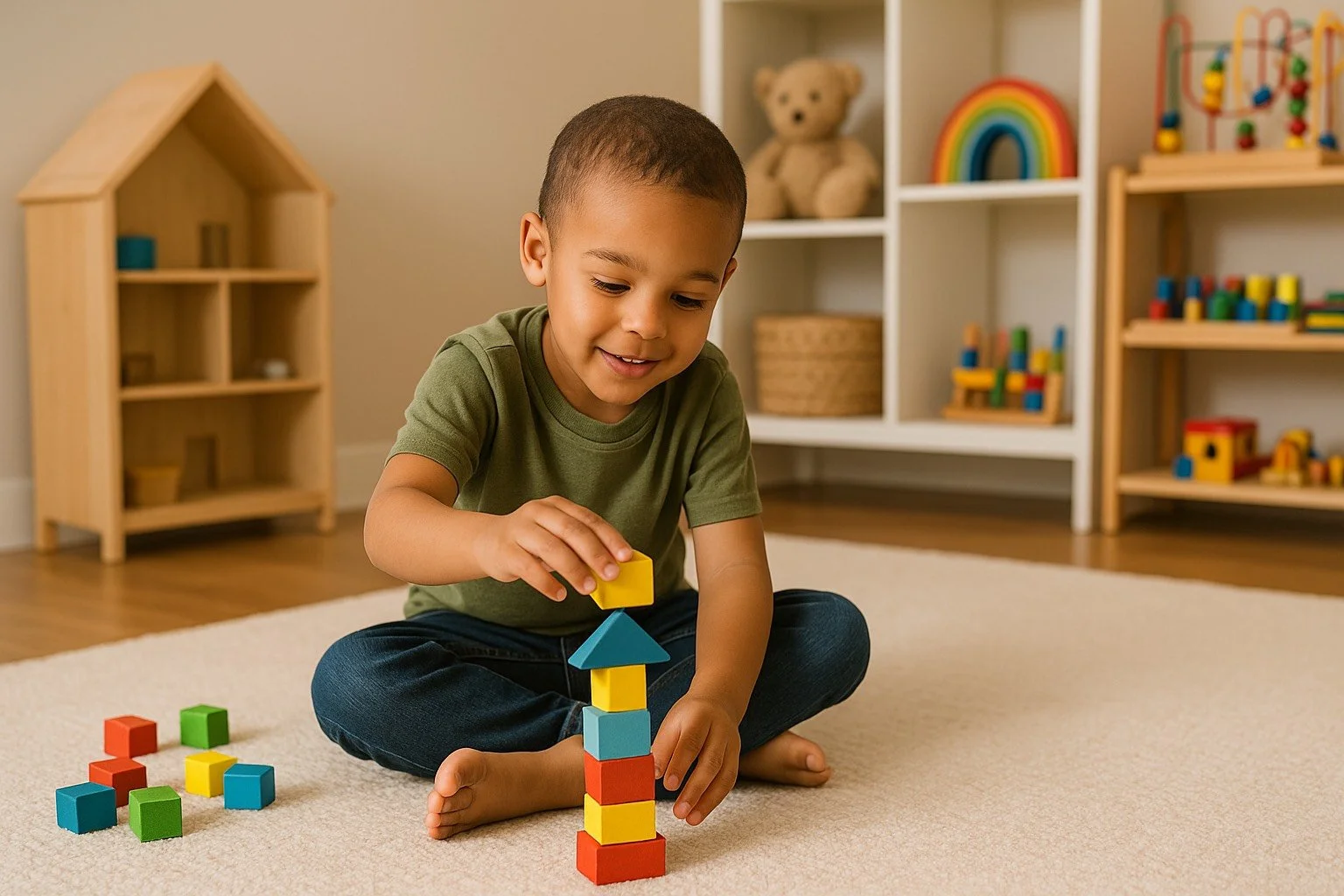play therapy
Play therapy is a specialized form of counseling designed specifically for children. It uses the natural language of play to help kids process emotions, navigate life’s challenges, and develop resilience.
Unlike ordinary play at home, therapeutic play is guided by a trained clinician using intentional, evidence-based techniques to foster emotional growth and healing.
It supports children in building emotional literacy, regulation skills, social abilities, and a healthy sense of self.
Play therapy is suitable for children ages 3 and up and can address a wide range of challenges, including anxiety, anger, ADHD, OCD, mood disorders, grief, trauma, behavioral concerns, academic struggles, and life transitions.
-Garry Landreth, Ed.D. Associate Editor for Neurology, Regents Professor in the Department of Counselor Education, University of North Texas
“There are many experiences in childhood in which children feel they have little or no control. Play is children’s way of working out balance and control in their lives. ”
Kristin Trammell-Lawson: Our Play Therapy Expert
How it works
CHILDREN OFTEN DON’T HAVE THE WORDS TO EXPLAIN WHAT THEY’RE FEELING, BUT THEY DO KNOW HOW TO PLAY. PLAY THERAPY MEETS THEM AT THEIR DEVELOPMENTAL LEVEL BY USING TOYS, ART, STORIES, AND OTHER EXPRESSIVE TOOLS TO UNCOVER AND WORK THROUGH DIFFICULT EMOTIONS AND EXPERIENCES.
The therapist uses structured, evidence-informed interventions within the play to gently guide the child toward greater understanding and coping skills.
Collaboration with caregivers is a crucial part of the process. Your involvement helps extend beyond the playroom and supports your child’s progress. You’ll receive regular updates, guidance, and support to help you stay connected and engaged in your child’s therapeutic journey.
What to expect in a session
Your child’s play therapy journey begins with an initial caregiver intake session. During this first meeting, we’ll gather important background information, discuss your child’s needs and challenges, and work together to set goals for therapy. This session also gives you a chance to ask questions and understand how we’ll support your child together.
Ongoing therapy sessions typically occur once a week and last between 45 and 60 minutes. Your child will meet individually with the therapist in a warm, supportive environment designed to encourage emotional safety and expression through play. Every session is thoughtfully structured to help your child build skills, process emotions, and gain confidence in a developmentally appropriate way.
The length of treatment varies depending on your child’s unique situation. Many children benefit from 12 to 20 sessions, while others with more complex needs may require longer-term therapy. Throughout the process, caregiver involvement remains essential. Regular check-ins and updates help ensure that you feel informed and empowered to support your child’s growth both in and out of the therapy room.
Benefits of Play Therapy
Promotes emotional expression and self-awareness
Helps children learn to regulate big emotions like anger, anxiety, and sadness
Strengthens problem-solving and decision-making skills
Improves social skills and peer relationships
Builds a stronger, more confident self-image
Supports healing from grief, trauma, and life transitions
Reduces behavioral issues and academic struggles
Enhances communication between children and caregivers








